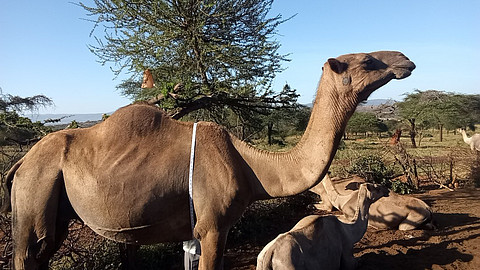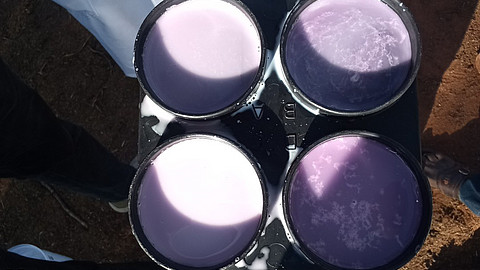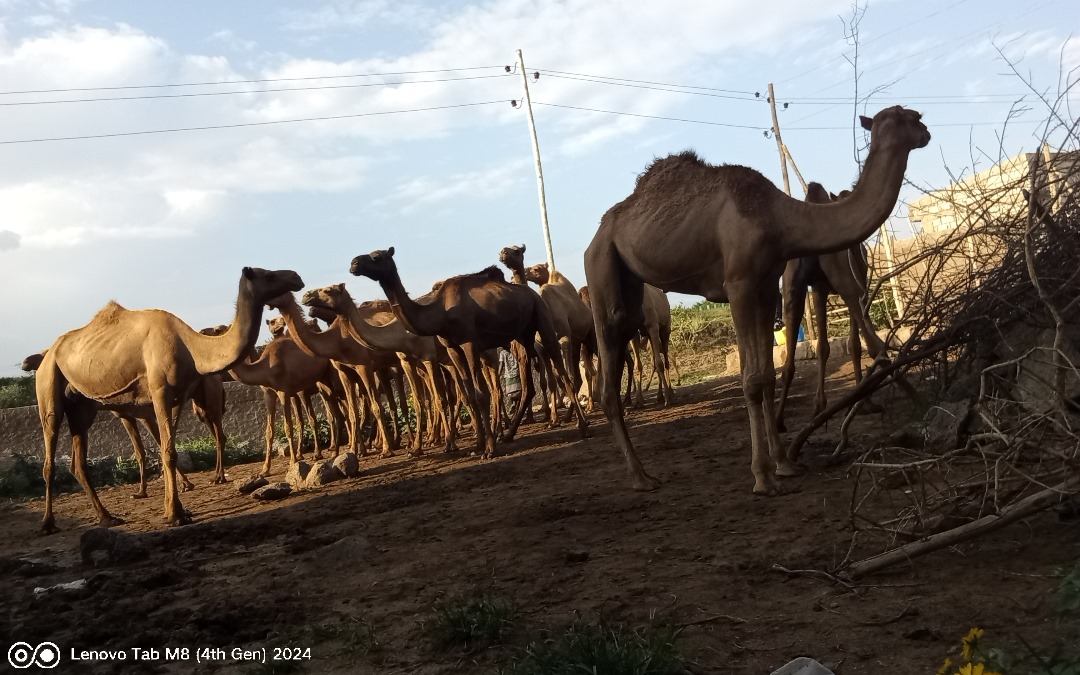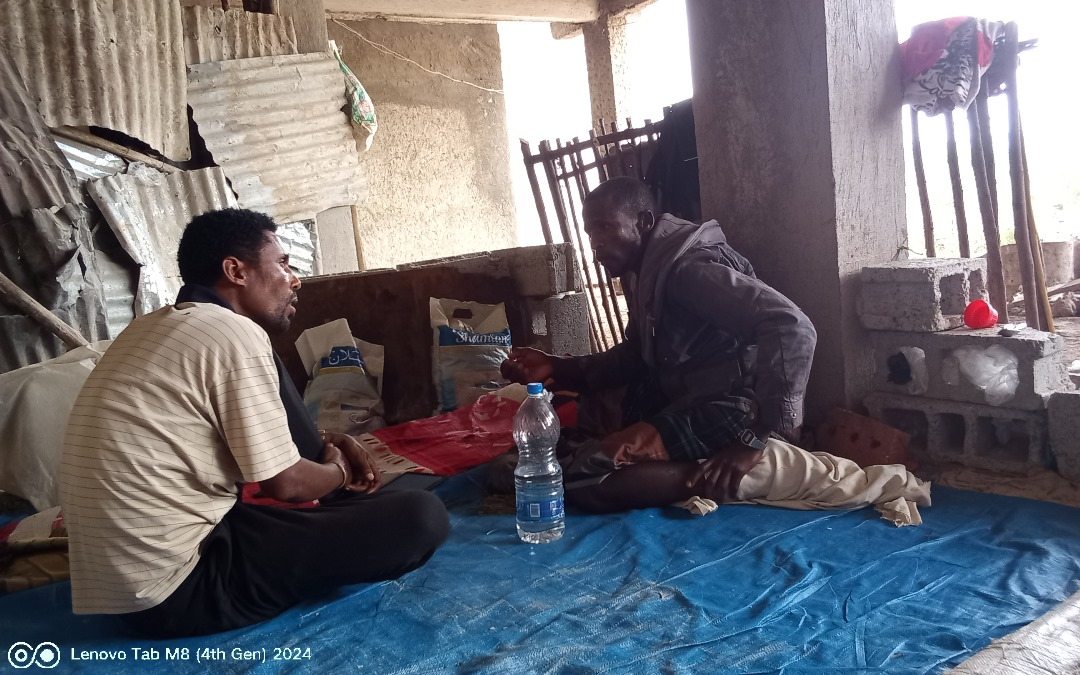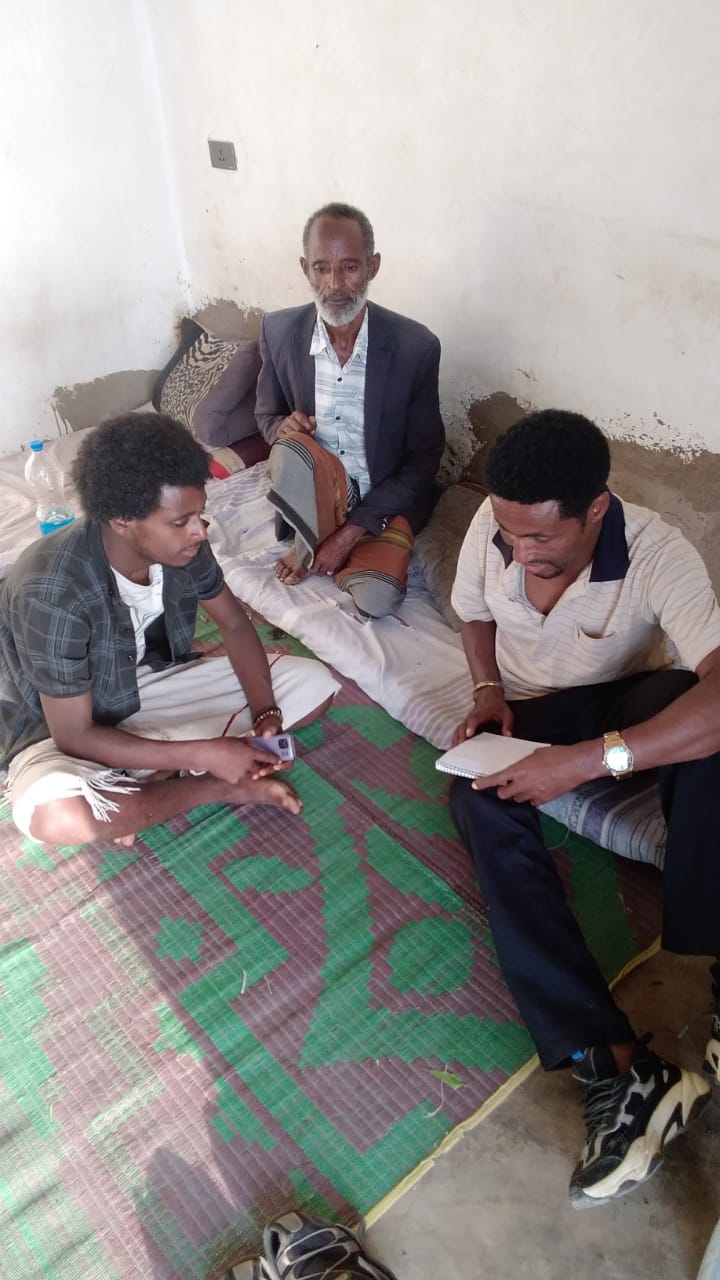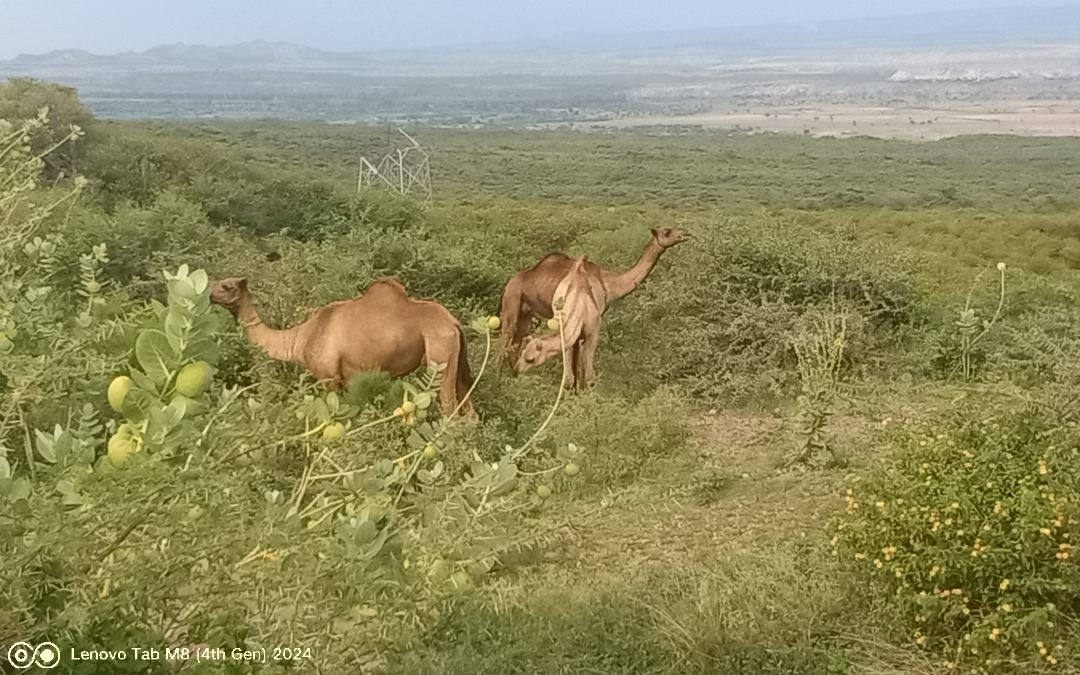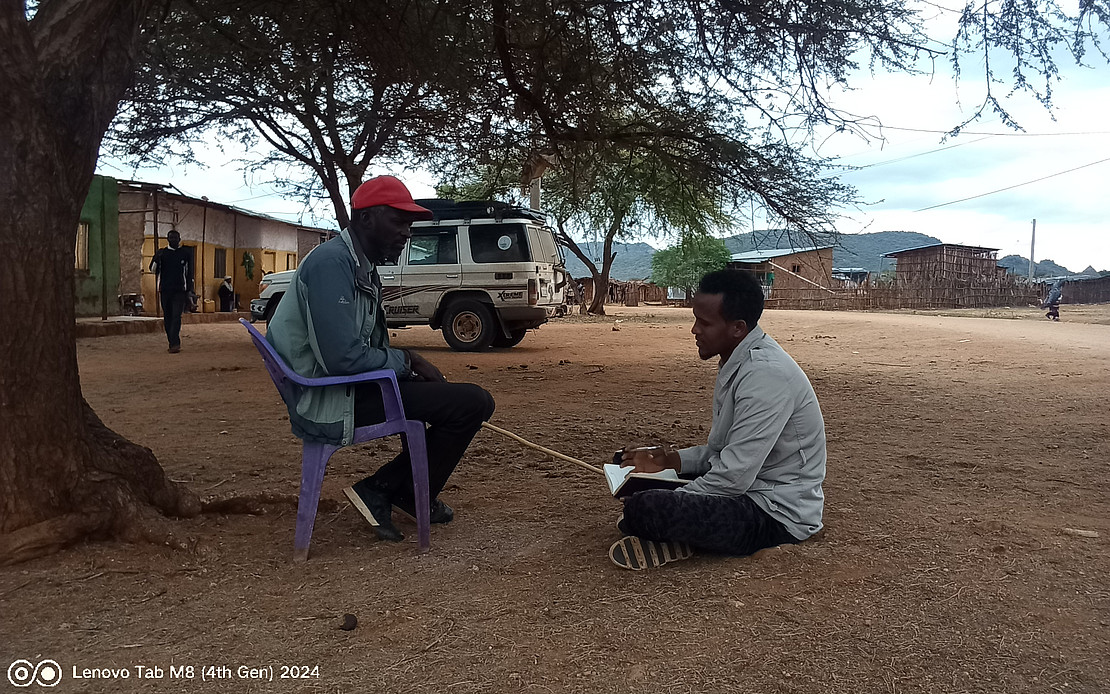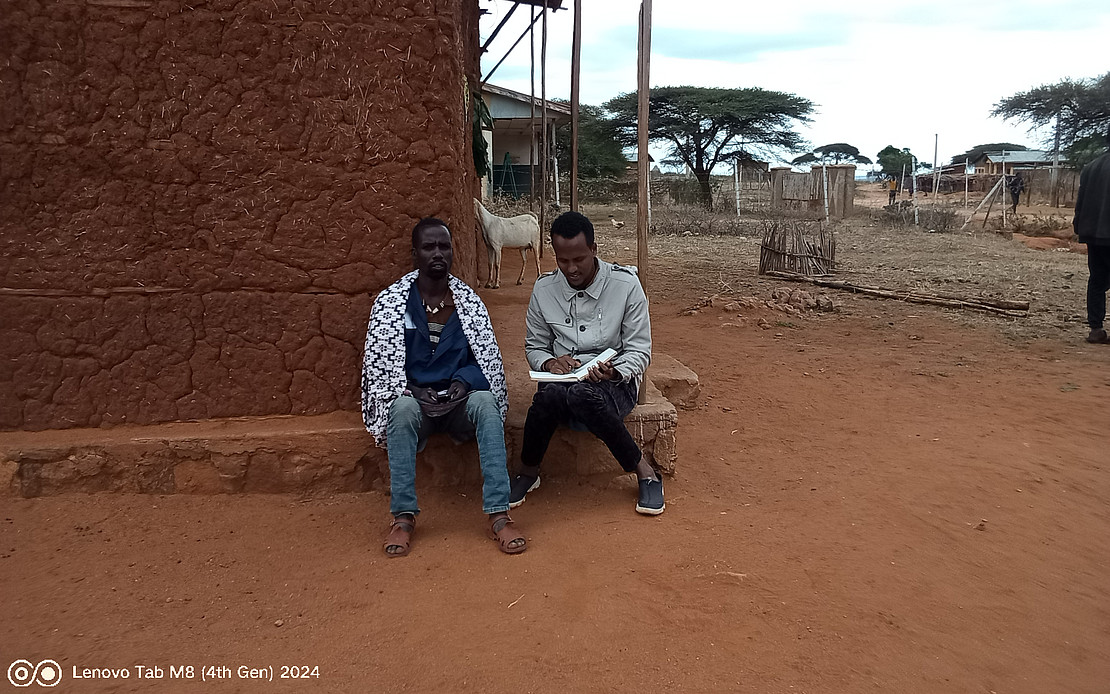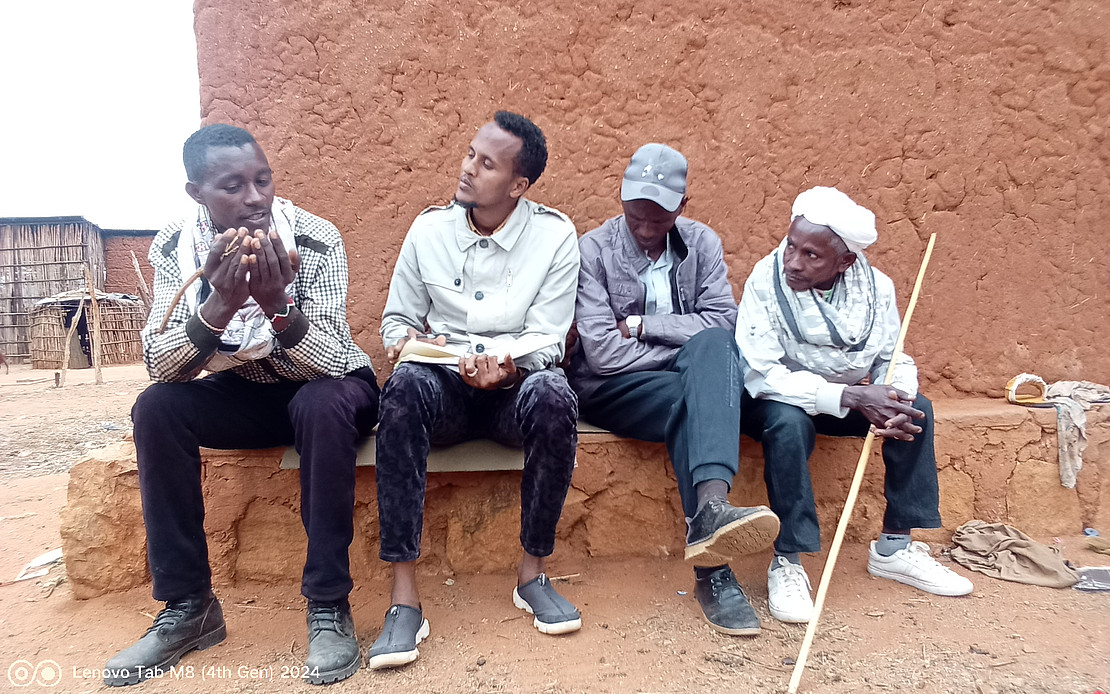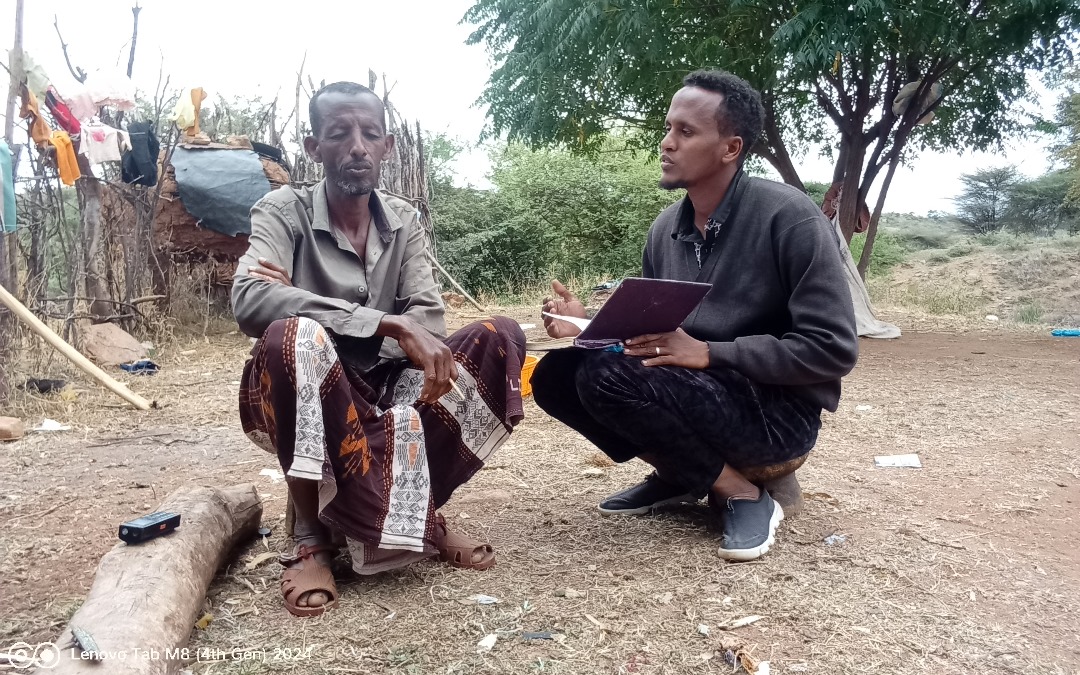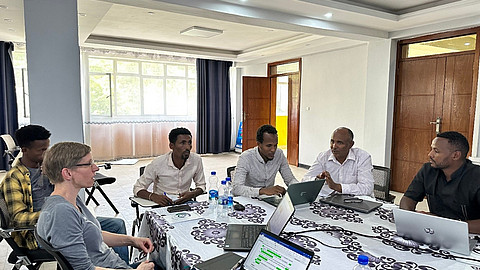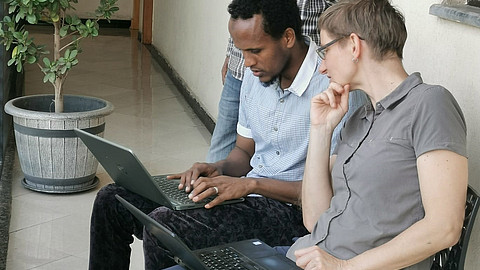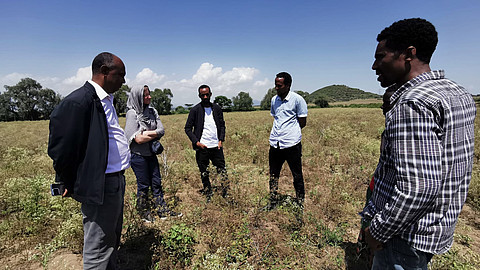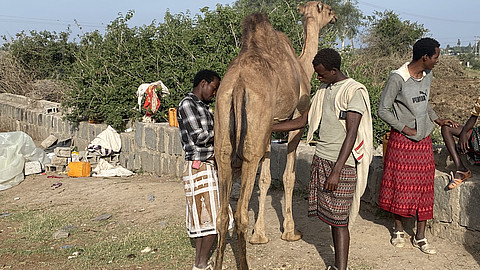News & Outreach
March 2025: New Master Studies Set to Shine Light on Camel Milking Practices and Value Chain
We are happy to announce the commencement of two Master's studies. The investigations will focus on the camel milk value chain, aiming to enrich understanding and optimization of milking practices and milk hygiene.
The first study, "Investigation of Camel Milk Handling Practices, and Bacteriological Quality Along the Value Chain" will closely scrutinize the handling practices of camel milk, as well as determining its bacteriological quality. This work will be overseen by Addis Ababa University (AAU), and co-supervised by Borana University (BrU) and the University of Kassel (UKS).
The second study, "Organizational Structure and Functionality of Camel Milk Value Chain and Income Generation," will delve into the infrastructure and profitability of the camel milk industry in the two study sites. This research will be supervised by BrU, and co-supervised also by UKS.
These research studies align with our ongoing Work Package 4 (WP4), "Analysis of the Camel Milk Value Chain". The findings are expected to address critical gaps in knowledge and contribute significantly to the camel milk value chain comprehension in the region.
Stay tuned for updates and insights from these pivotal studies. We look forward to sharing our progress and discoveries with you over the next 12 months.
February 2025: Activities of Task 2.3 "Camels' most preferred forage feed and their nutritional profile" initiated
In February 2025, the team of UKS initiated the activities of task 2.3. In this task, camels' most preferred forage feed and their nutritional profile will be assessed. Two and three focus group discussions with purposively selected experienced camel herders have been conducted in Borana and East Shewa study zone, respectively. Structured question guidelines and feed resource maps were used to identify the most preferred forage species by camels, as stated by the herders. The perceived importance was used to rank the identified species. Following the FGD, field observations of camels' feeding behavior, and sampling and subsequent laboratory analysis of the wild plant species that are most frequently consumed by the camels will be performed. These activities will start in April 2025 in Borana zone.
January 2025: Dry season monitoring of camel herds completed in East Shewa and Borana zone
The two doctoral researchers, with the support of local stakeholders and students, completed the monitoring of 48 camels herds in the two study zones. In total, the re-/productive performances and (udder) health condition of 132 female camels have been assessed; in addition, the infestation of the females and their calves (n=130) with gastrointestinal nematodes were evaluated. The monitoring of camels will now be followed by the collection of monthly milk records until October 2025.
Presentation of the SUSCAMI project at the GFFA 2025
Dr. Regina Roessler, coordinator of the SUSCAMI project and senior researcher at the University of Kassel, presented the SUSCAMI project (funded by BMEL through BLE) at the cluster and network meeting "Grouping, Cooperation & Value Chains" organized by GFA during the Global Forum for Food and Agriculture (GFFA) 2025 in Berlin.
Monitoring of camels' re-/productive performances and health status started in November 2024 (East Shewa) and December 2024 (Borana)
Following the surveys to assess husbandry and health care management of camels of pastoralists from East Shewa and Borana zone, the two doctoral researchers, Berhanu Wakjira (Addis Ababa University) and Hassan Hassanuur Kalla (University of Kassel) started monitoring of camels' re-/productive performances (Task 2.2) and health status (Task 3.2) in November (East Shewa) and December (Borana), respectively.
September 2024: Joint interviews on camel husbandry, feeding and health management in Borana and East Shewa zone completed
From June until September 2024, the first research activities within the SUSCAMI project have been conducted. In total, 386 camel herders from Fantale district (East Shewa zone) and from different districts in Borana zone were interviewed to assess the husbandry, feeding, breeding and health care management of camels (Tasks 2.1 and 3.1). Data will serve to define criteria to select camel herds for monitoring of camels' re-/productive performances (Task 2.2) and health status (Task 3.2) as well as feeding behavior (Task 2.3) planned for the main dry and rainy season of 2024 / 2025.







